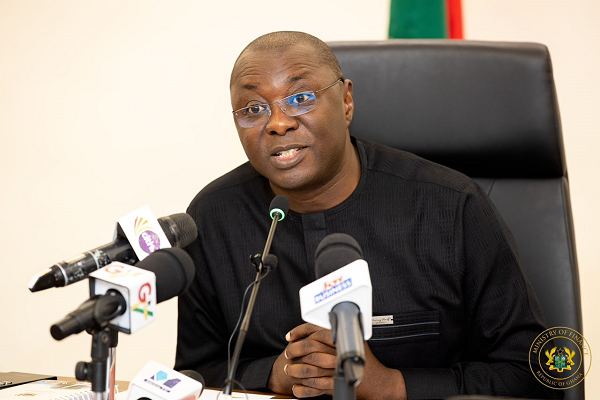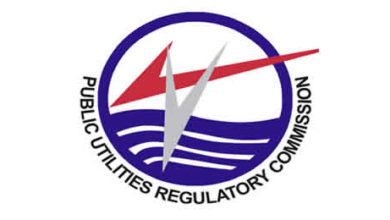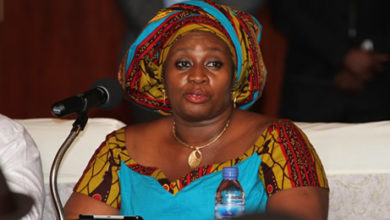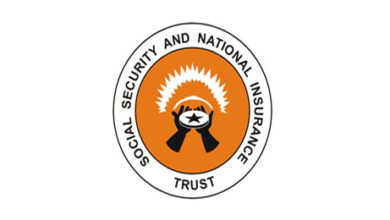Restoring economic stability: Govt adopts critical measures – Targets GH¢3.5 billion savings

The government has adopted a raft of measures to cut expenditure and save the economy about GH¢3.5 billion for the rest of the year.
The measures include an additional 10 per cent cut in discretionary spending, mostly on goods and services of all ministries, departments and agencies (MDAs), a 50 per cent cut in fuel coupon allocations for all political appointees and heads of government institutions, including state-owned enterprises (SOEs), from April 1, this year, and a moratorium on all foreign travels, except pre-approved critical/statutory travels.
The 10 per cent cut on discretionary spending adds up to the 20 per cent which was announced earlier in the year by the minister, bringing the total expenditure cut in discretionary expenditure for MDAs to 30 per cent.
The Minister of Finance, Ken Ofori-Atta, who unveiled the interventions at a press conference in Accra yesterday, also announced measures to mitigate fuel prices, improve domestic revenue mobilisation, the completion of the process for the removal of ‘ghost’ names from government payroll and encourage burden sharing among stakeholders.
He also announced some revenue mobilisation measures, including the passage of the Electronic Transactions Levy (E-Levy) Bill, the Tax Exemptions Bill and the Fees and Charges Bill, to rake in the needed cash.
The measures come in the wake of the economy experiencing some difficulties that have led to rising fuel prices, inflation, exchange rate depreciation, the high cost of living and revenue mobilisation challenges.
The minister expressed the confidence that the measures would address challenges currently confronting the economy in the wake of recent global and domestic events and help the country remain steady towards the achievement of the 7.4 per cent deficit target set in the 2022 budget.
He said they would also help turn around the current economic challenges and position the country to build on the gains it had made, while cushioning the citizenry.
Pay cut
Mr Ofori-Atta announced the Cabinet’s decision for ministers and heads of SOEs to contribute 30 per cent of their salaries from April to December this year to the Consolidated Fund.
“We would like to thank the Council of State for its leadership in complimenting the government on this policy,” he said.
Debt, labour issues
Beyond the sacrifices being made by appointees of the President, the government was also pursuing a comprehensive re-profiling strategies to reduce the interest expense burden on the public purse, he said.
He said the government would liaise with organised labour and the Ghana Employers Association to implement the measures captured in the Kwahu Declaration from the 2022 National Labour Conference.
They include reforms towards addressing salary inequities (such as between Article 71 Office Holders and public sector workers) and the weak link between pay and productivity and the sustainability of the payroll.
Free SHS
Mr Ofori-Atta, however, made it clear that the government would maintain the free senior high school (SHS) policy in its current form to ensure that all Ghanaian children had access to secondary education.
In recent times, there have been calls for discrimination in the policy to ensure that only those who could genuinely not pay for secondary education benefitted from the policy.
Energy sector measures
The Finance Minister said the government was implementing measures to guarantee the constant supply of petroleum products and mitigate the impact of the rising price of petroleum products at the pump.
“For the next three months, the government has decided to reduce margins in the petroleum price build-up by a total of 15Gp per litre, with effect from April 1, 2022,” he said.
The measures included the reduction of Bulk Oil Storage and Transportation (BOST) margin by 2Gp per litre, the Unified Petroleum Pricing Fund (UPPF) margin by 9Gp per litre and the Fuel Marking Margin (FMM) by a pesewa per litre.
“These reductions in margins are expected to reduce the price of petrol by 1.6 per cent and diesel by 1.4 per cent. We anticipate that the measures taken to strengthen the currency will help further stabilise prices at the pump,” Mr Ofori-Atta stated.
“These times call for very efficient use of energy resources. In line with this, there will be a 50 per cent cut in fuel coupon allocations for all political appointees and heads of government institutions, including state-owned enterprises (SOEs), effective April 1, 2022,” he added.
This will be the second intervention the government has made towards a reduction in fuel prices. In May last year, it reduced fuel prices by 8Gp per litre.
Additionally, the government would conclude the renegotiation of the energy sector Independent Power Producers (IPP) capacity charges by the end of the third quarter of the year to further reduce excess capacity payments by 20 per cent, Mr Ofori-Atta stated.
When that became successful, the government would make savings of GH¢1.5 billion, he stated.
Purchase of vehicles
The Finance Minister also announced, with immediate effect, a complete moratorium on the purchase of imported vehicles for the rest of the year.
“The measure affects all new orders, especially four-wheel drives,” he said, adding that the government would ensure that the overall effect would reduce total vehicle purchases by the public sector by at least 50 per cent for the period.
Regarding foreign travels, which takes a chunk of government revenue, the minister imposed an immediate moratorium on all beneficiaries of such travels, except those approved before the announcement.
Ghost workers
On the removal of unqualified names (‘ghost names’) from government payroll, Mr Ofori-Atta indicated that ongoing measures to eliminate ‘ghost’ workers from the payroll would be concluded by the end of the year.
The measures announced last year included the linkage of the national identification card, the Ghana Card, with the government payroll to ensure that only those who qualified and were alive drew on the public purse.
The Finance Minister said the government would also impose a moratorium on the establishment of new public sector institutions by the end of next month, while prioritising ongoing public projects over new ones.
“This is to enhance the efficient use of limited public funds over the period by finishing ongoing or stalled but approved projects, reduce expenditure on all meetings and conferences by 50 per cent, effective immediately,” Mr Ofori-Atta emphasised.
Revenue measures
Aside from the expenditure cuts, the Finance Minister also announced measures to shore up revenue.
“These will include the implementation and collection of the revised property rate by the end of April 2022, implement the ‘E-VAT/E-Commerce/E-Gaming initiatives’ and roll out the simplified tax filing mobile application for all eligible taxpayers by July 2022,” he stated.
He said the government would work with Parliament to pass the E-Levy, Tax Exemptions and Fees and Charges bills to rake in the needed revenue.
It would also prioritise the Revenue Assurance, Compliance and Enforcement (RACE), which is being implemented by the Ghana Revenue Authority (GRA), to plug revenue leakages, he added.
A ‘No Duty, No Exit’ policy would be strictly enforced at the MPS Terminal at the Tema Port, he stated.
Currency measures
Regarding the stability of the local currency, Mr Ofori-Atta said the government would conclude external financing arrangement of up to $2 billion in the next six weeks, in line with the approved external financing for 2022 and for liability management.
He said the ministry would work with the Bank of Ghana “to review the foreign exchange retention policy to ensure that multinational companies in the extractive sectors retained foreign exchange earnings from the sale of our resources in the country”.
In the medium term, he said, the government would wean off public tertiary institutions from its payroll and provide them with a fixed amount “block grant” instead.
This means that public tertiary institutions will have to generate funds internally to support their operations.
Smooth sail
The minister was quick to remind Ghanaians that until the current challenges, the government had made some significant achievements, including the successful completion of the four-year International Monetary Fund (IMF) programme, achieving an annual average Gross Domestic Product (GDP) growth of seven per cent, maintaining the fiscal deficit below five per cent for three consecutive years, maintaining a positive primary balance and lowering the lending rate by about 10 percentage points.
In addition, Mr Ofori-Atta said, the government had also done well to restructure the banking sector to protect the savings of 4.6 million depositors, an exercise which cost it GH¢25 billion.
To help the government achieve the varied measures, he said, meetings would be held in the coming days with MDAs to review their spending plans for the remaining three quarters of the year to achieve the discretionary expenditure cuts.
No IMF
Responding to questions regarding suggestions that the government should seek a bailout from the IMF, the Finance Minister ruled out that option, saying the government was relying on home-grown strategies.
He expressed the optimism that the home-grown measures would address the current challenges confronting the country and restore it to pre-COVID-19 levels.
He said the New Patriotic Party (NPP)-led government had a track record of restoring the economy to its feet anytime it faced challenges close to what it was currently going through.
“We did this under President Kufuor in 2001, and in 2017 we restored the economy from what they left it in 2016; so this third time we are confident that we will be able to do so,” Mr Ofori-Atta said.





